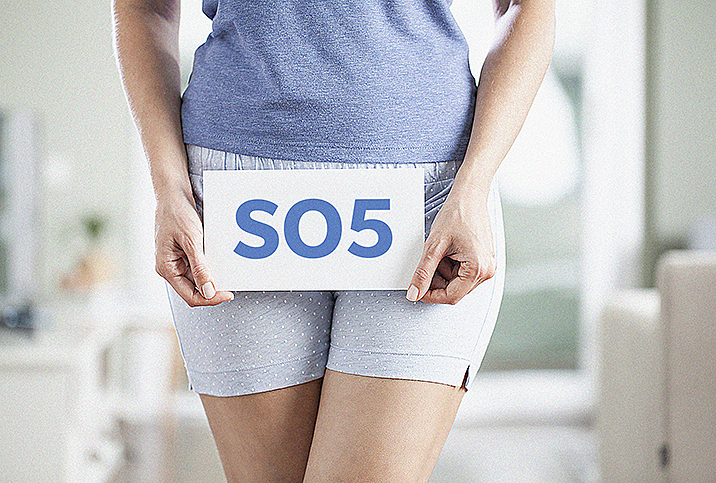Why Pregnant Women Are More Susceptible to UTIs

Being pregnant changes your body in so many ways, besides your growing abdomen. One of the things to be on the lookout for is signs of a urinary tract infection (UTI). Unfortunately, pregnancy can put you at higher risk for a UTI. If left untreated, it can have some pretty dangerous complications.
So why exactly are you more prone to a UTI now, and what can happen if it's not taken care of?
What's with UTIs in pregnancy?
Until recently, the medical community wasn't sure why pregnant women were more susceptible to UTIs. Now, scientists have discovered shifts in lactobacillus—the health-protective bacteria in the vagina and urinary tract—occur in pregnant vaginas and this increases the risk of UTIs, according to Betsy Greenleaf, D.O., the first board-certified female urogynecologist in the United States.
"The microbiome has become a hot topic in recent years," Greenleaf said. "[It's] the environment of bacteria that lives in an area of the body." Women, because the rectum, vagina and urethra are all located close together, have a higher chance of bacteria going where it shouldn't.
Those who are more prone to UTIs often lose the good bacteria in the vagina, leaving the "bad" bugs to take over and colonize. These bacteria are now closer to the urethra, which is the opening where urine comes out. Bacteria can enter, said Greenleaf, and this can lead to a bladder infection.
The risks of UTIs
"UTIs are common, but people who are pregnant have an increased risk," said Lauren Demosthenes, M.D., senior medical director with Babyscripts. "This is because the pregnancy hormone progesterone dilates the ureters that connect the bladder to the kidneys and allow for urine from the bladder to reflux back up toward the kidneys."
This can put you at a higher risk for a kidney infection known as pyelonephritis. Many people who develop this condition need to be hospitalized and given strong antibiotics.
Furthermore, if the infection isn't taken care of, bacteria from the kidneys can enter the bloodstream and cause sepsis, Greenleaf said.
A severe infection can also cause your body to become stressed, triggering widespread inflammation and possibly bringing on premature labor.
Warning signs of infection
How symptoms show up and their severity will vary from person to person. However, in general, some signs you should watch for that could indicate you have a bladder infection include:
- Feeling like you have to pee, regardless of how much urine your bladder has
- Urinary frequency, or having to use the bathroom a lot
- Burning when you pee
- Blood in the urine
- In some cases, confusion or a change in mental status
As the UTI becomes worse, you might experience fever, nausea and vomiting, or back pain, particularly at the location of your kidneys.
If you are pregnant and have symptoms, it's a good idea to play it safe and have your healthcare provider check for a UTI. Because of the severe health effects of kidney infections, "antibiotics are definitely recommended in pregnancy versus watchful waiting," Demosthenes stated.
Treating UTIs
According to Greenleaf, the definition of a UTI has changed over the course of her career. "It used to be that urine was considered sterile and any presence of bacteria equaled a urinary tract infection," Greenleaf said. "Through advances in testing and new understandings in physiology, urine is no longer considered a sterile fluid."
This means that if you have bacteria in your urine but aren't showing any outward symptoms, you're considered to have asymptomatic bacteriuria, which means your bladder is colonized. Your provider will let you know if you should be treated with antibiotics since you might not show any symptoms.
According to Demosthenes, if you do need to be treated with antibiotics, some commonly used ones in pregnancy include amoxicillin, ampicillin and cephalosporins.
Sometimes, a sulfa drug or Macrodantin may be required, Demosthenes added. They can pose a risk to the fetus in the first trimester, but "the risk is minimal and is less than the risk of the complications from pyelonephritis."
Because UTIs are so common and can have dangerous complications, your provider will likely order a urine culture early in your pregnancy. If it shows you have an infection, you may be treated with antibiotics and then have another test to make sure the infection is gone.
It might seem scary, but the important thing to remember is to keep in touch with your healthcare team and pay attention to how you're feeling. "With routine testing for infection and early attention to symptoms," Demosthenes reassured, "you should have minimal cause for concern."


















